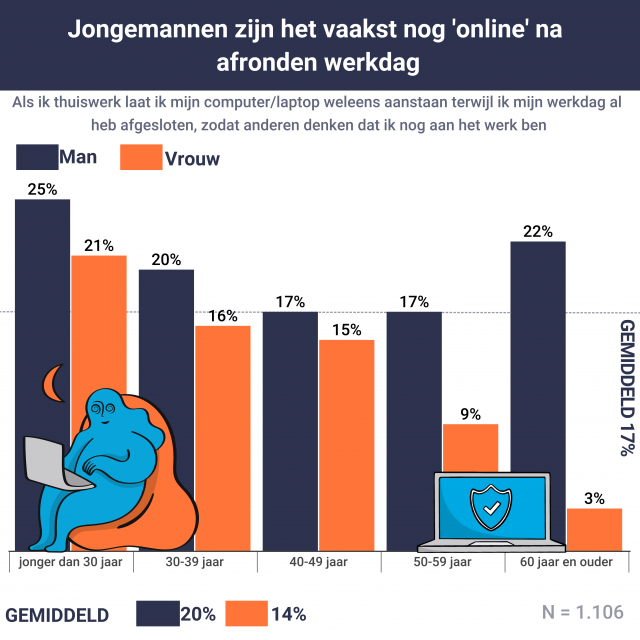
Fifteen percent of the Dutch are afraid that their boss is monitoring them remotely, but two-fifths do not mind if the employer has good reasons for this.
As many as one in six workers fear that their employer will remotely monitor employees’ laptops and telephones. This is apparent from a survey by VPNdiensten.nl among 1,106 Dutch people working in paid employment, conducted by PanelWizard. Despite that fear, forty percent have no problem with it if it turns out that the employer’s check is necessary.
Espionage software
Young people in particular fear digital control by their employer. For example, no less than twenty percent of them think that their employer keeps track of what employees do on their laptop or telephone when they work from home. Only five percent of people over 60 are afraid of this. “Due to working from home, managers have partly lost control over their staff,” says Abel Baas of VPNservices. “Some try to regain that control through spy software or require their employees to keep their cameras on at all times. Not only does that affect their privacy, but as a manager you also send the signal that you do not trust your employees. I can imagine that employees feel very uncomfortable and controlled because of this.”
tricks
Not only are employees concerned that their employer is monitoring what they are doing, but also how many hours a day they are online. As a result, no less than a third feel burdened if they sometimes end their working day earlier than usual. Remarkably, women (35 percent) feel more guilty about this than men (thirty percent). Despite the fact that men have less difficulty with this, no less than twenty percent of them leave their laptop on longer, so that others think they are still working. Among women, this percentage is only fourteen percent. Baas: “Of course you can come up with various tricks that make it seem like you’re just working. Many people probably feel very tied to the number of hours they have to work per day. In the end, it’s also about what you get done in those hours. You can leave your laptop on all day, but if the result is not satisfactory, your employer will see through it in no time.”
Quick bite
The research also shows that as many as one in seven working Dutch people takes less breaks at home than at the office. Even now, women (sixteen percent) return to their home workplace more quickly after lunch or afternoon snack than men (twelve percent). Still, a stress-free break doesn’t seem worth much, because no less than 97 percent of those surveyed don’t want to give up a salary for the guarantee that their employer won’t see how long they’re sitting in front of their laptop. Baas: “I can imagine that home workers do not want to run the risk of people wondering where they are during a break. But at the office, a nice lunch sometimes runs late, that’s just part of it. Employees do not always have to account for where they are. So I fully understand that they do not want to give up wages for this.”
